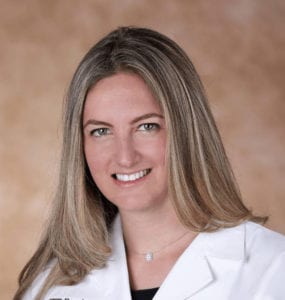
In honor of Mother’s Day, it is time to reflect on all of the things you inherited from your mom- maybe it’s her eye color, intelligence, height, or great sense of style. When thanking mom for her great genes, it is easy to forget that half of your genetic make-up comes from your father. This is true when it comes to inherited genetic risk of cancer as well. Specifically, when it comes to breast cancer risk, many women have the dangerous misconception that the only family history that matters is that on their mother’s side. However, genetic mutations that are linked to breast cancer risk can be inherited from either your mother or father. The most well-known of these genes are BRCA1 and BRCA 2 (think Angela Jolie).
BRCA 1 and 2 are tumor suppressor genes, which function to protect cells from becoming cancerous. When mutated, these genes lead to uncontrolled cell growth and division and ultimately cancer. Approximately 10% of all breast cancer patients carry one of these inherited genetic mutations that puts them at an extremely high risk of developing breast cancer compared to the general population. These genes are considered “dominant”, meaning that you only have to inherit one copy of the mutation from either your mother or father to be considered high risk.
In patients with a BRCA mutation, their lifetime risk for developing breast cancer can reach 50-70%, as opposed to a 12% risk for the general population. Women who develop breast cancer with one of these mutations also tend to have more aggressive disease and develop cancer at a younger age. Both women and men with these mutations are at risk for developing other cancers as well, such as ovarian and prostate cancer. Once detected, surveillance and surgical options are available for reducing the risk of cancer.
So, how do you know if you are at risk for carrying a BRCA mutation? Criteria for who qualifies for BRCA genetic testing currently include patients listed below:
- A personal history of breast cancer diagnosed at a young age (younger than 50)
- A personal history of triple negative breast cancer (cancer that does not carry receptors for estrogen, progesterone, and the HER2 protein)
- A personal history of breast cancer affecting both breasts
- A personal history of both breast and ovarian cancers
- A personal history of ovarian cancer
- A personal history of breast cancer and one or more relatives with breast cancer diagnosed at age 50 or younger, one relative with ovarian cancer, or two or more relatives with breast or pancreatic cancer
- A history of breast cancer at a young age in two or more close relatives, such as your parents, siblings or children
- A male relative with breast cancer
- A family member who has both breast and ovarian cancers
- A relative with ovarian cancer
- A relative with a known BRCA1 or BRCA2 mutation
- Ashkenazi (Eastern European) Jewish ancestry, with a close relative who has breast, ovarian or pancreatic cancer at any age.
If you are concerned about your risk of cancer due to a strong family history on either your mother or father’s side, you should discuss this risk further with your primary care physician or gynecologist and consider genetic counseling to see if you qualify for testing.
If there is a topic you would like to hear more about pertaining to women’s health or more specifically breast health, you can message me on Facebook @drstarrmautner.
Dr. Starr Mautner is a breast surgical oncologist at The Miami Cancer Institute, a part of Baptist Health South Florida. She received her undergraduate and medical degrees from the University of Miami and completed her general surgery training at New York Presbyterian Hospital/Weill Cornell Medical Center. Additionally, she completed breast surgical oncology research and clinical fellowships at Memorial Sloan Kettering Cancer Center. Her expertise is in the surgical management of breast cancer and she uses a multidisciplinary approach to treat a variety of patients with breast disease. In her spare time, she enjoys playing tennis and spending time with her family.






